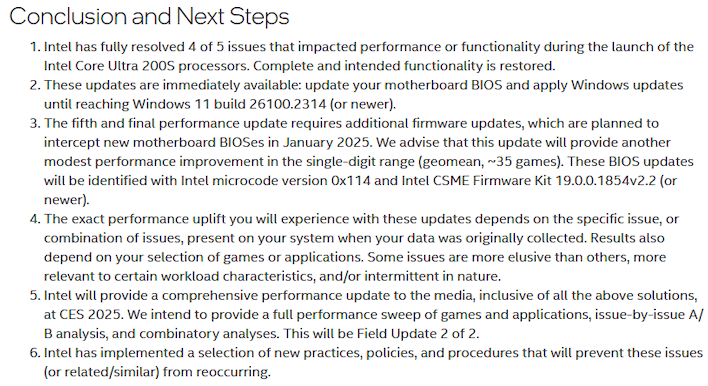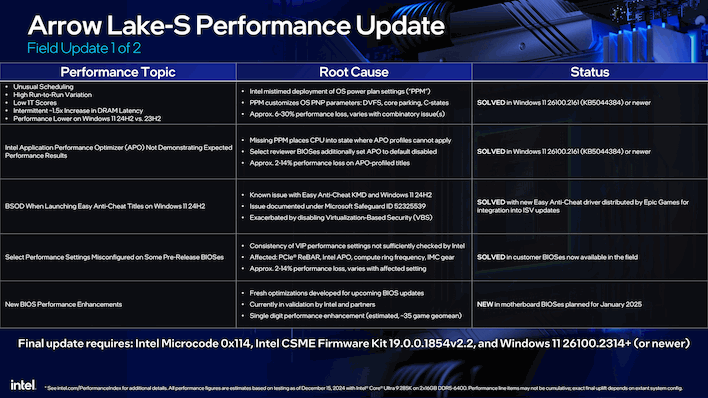Intel Details Performance Fix, Gains And Timing For Arrow Lake Desktop CPUs
Intel identified five areas where Arrow Lake was struggling, and they're outlined in the slide above, but we'll briefly go over the with you. The biggest change apparently comes from the lack of processor-specific power plan settings. Intel notes that the "PPM" package "customizes OS PNP parameters" including dynamic voltage and frequency scaling, core parking, C-states, and so on.
Intel points to this specific problem for high run-to-run variance, low single-threaded benchmark results, unusually high memory latency—apparently an intermittent issue—and what it calls "unusual scheduling," where games would prefer E-cores over the faster and lower-latency P-cores. That package is now available either as a stand-alone download or from Windows Update.

A problem that we ran into while reviewing the Intel Arc B580 was that launching certain games that make use of Easy Anti-Cheat, like Elden Ring and Armored Core VI, would cause the Arrow Lake machine to blue-screen and restart. To be clear, this was apparently an issue with Easy Anti-Cheat and Windows 11 24H2 and not really with Intel or Arrow Lake, but either way, it should be resolved with the latest game updates.
Furthermore, Intel notes that some of the pre-release BIOS settings did not have correct defaults configured. This includes settings like PCIe ReBar and the aforementioned Intel APO as well as lower-level bits like "compute tile ring frequency," memory controller ratio, CPU power limits, and more. Apparently, this is another factor behind the unusually high memory latency that some reviewers observed.
Update, 11:50PM 12/18/24 - Adding The Robert Hallock Livestream Interview From HotHardware's YouTube Channel that addresses these fixes, here...

The biggest performance uplifts will purportedly appear when users get the power plan package and APO working, at least if you're playing an APO-supported game. We attempted to manually install the PPM when it first hit, but it's possible our machine already had the package from Windows Update, as we didn't see any real change in performance before and after. We're looking into doing some comparative testing against our original review numbers once the final BIOS revision comes out.



